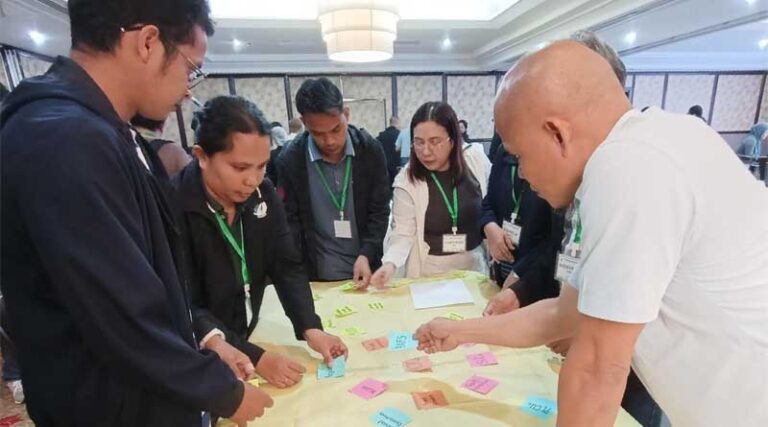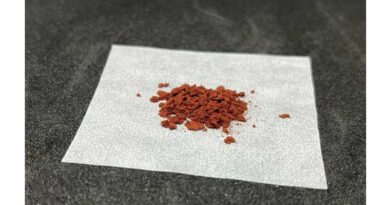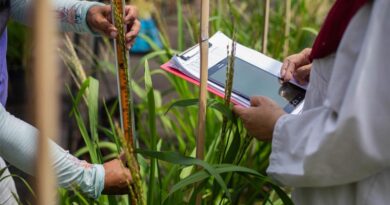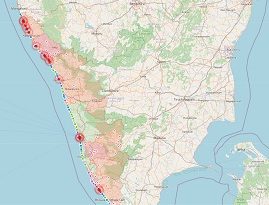
DA-BPI, DA-PhilRice, and IRRI Strengthen Climate-Smart Pest Management In Rice In The Philippines
04 November 2025, Philippines: The Philippine Department of Agriculture – Bureau of Plant Industry (DA-BPI), the Department of Agriculture – Philippine Rice Research Institute (DA-PhilRice), and the International Rice Research Institute (IRRI) are intensifying their efforts to protect rice farmers from increasing pest threats worsened by climate change.
Through the four-year project “Development of an Innovation System for Climate Smart Pest Management (CSPM) in Rice,” funded by the Department of Agriculture’s National Rice Program through the Department of Agriculture – Bureau of Agricultural Research (DA-BAR), the agencies are working together to evaluate, promote, and scale CSPM nationwide.
CSPM combines integrated pest management (IPM) and climate change adaptation and mitigation to reduce pest-related crop losses, increase the incomes of smallholder farmers, and reduce agricultural emissions.
In a workshop held in Manila, Philippines, from September 16 to 18, 2025, DA-BPI Chief of Crop Protection and Management Division Peter Magdaraog stated, “Accurate data from both the laboratory and the field are essential in developing effective methods for climate-smart pest management.” IRRI Sustainable Impact for Rice-based Systems (SIRS) Department Research Director Dr. Virender Kumar concurred, “As climate change continues, we need stronger strategies to protect our crops, support our communities, and safeguard the environment.”
The workshop came at a critical time. Earlier this year, DA-PhilRice warned rice farmers in Central Luzon, Western Visayas, the Cordillera Administrative Region, and the Bicol Region of an expected infestation of rodents, rice stemborers, brown planthoppers, and rice bugs. Farmers were advised to closely monitor their fields and employ integrated pest management strategies, as heavily infested fields may experience yield losses of up to 90%.
Since its launch in 2023, the CSPM project has developed and tested tools and technologies, including a Loop-Mediated Isothermal Amplification (LAMP) assay, a resource-efficient method for detecting seedborne pathogens; surveillance of the bacterial blight pathogen in major rice-growing areas; and optimization and performance evaluation of selected biological control agents.
During the workshop, IRRI Innovation Systems Scientist Dr. Rica Flor facilitated sessions on scaling strategies and stakeholder mapping for CSPM. The participants also evaluated printed and digital pest identification and management tools, discussed requirements for the development of digital tools for integrated crop and pest management advisory, evaluated current approaches for translating pest and disease surveillance data into actionable information, outlined pathways to integrate CSPM outputs into existing government programs, and identified priority topics for future research proposals.
The CSPM Project has been fostering strong collaboration among researchers, farmers, extension workers, and policymakers to support the nationwide scaling of CSPM technologies, ensuring they are widely adopted and responsive to the evolving challenges rice farmers face due to pests, diseases, and climate change.
Also Read: India Enforces 30% Import Duty on Canadian Yellow Peas, Impacting Global Pulse Trade
📢 If You’re in Agriculture, Make Sure the Right People Hear Your Story.
From product launches to strategic announcements, Global Agriculture offers unmatched visibility across international agri-business markets. Connect with us at pr@global-agriculture.com to explore editorial and advertising opportunities that reach the right audience, worldwide.






